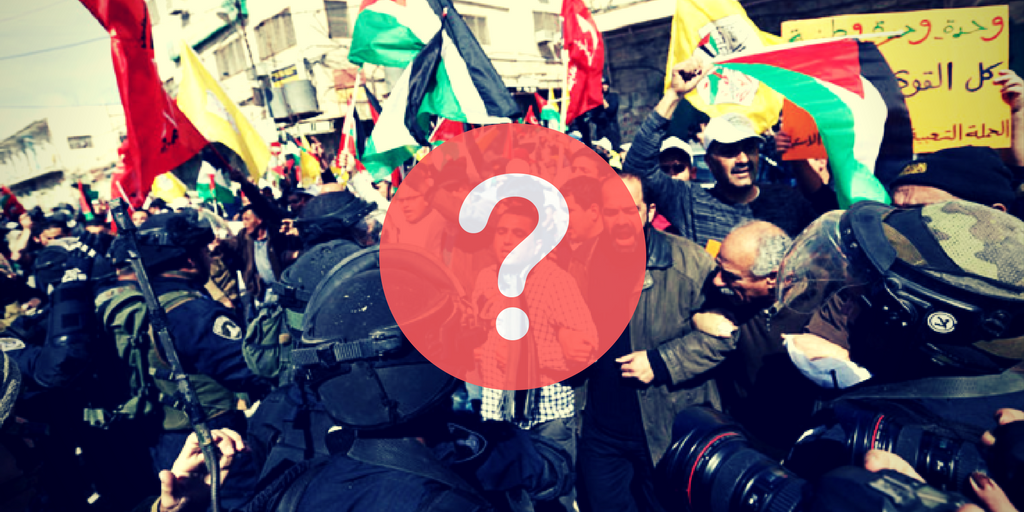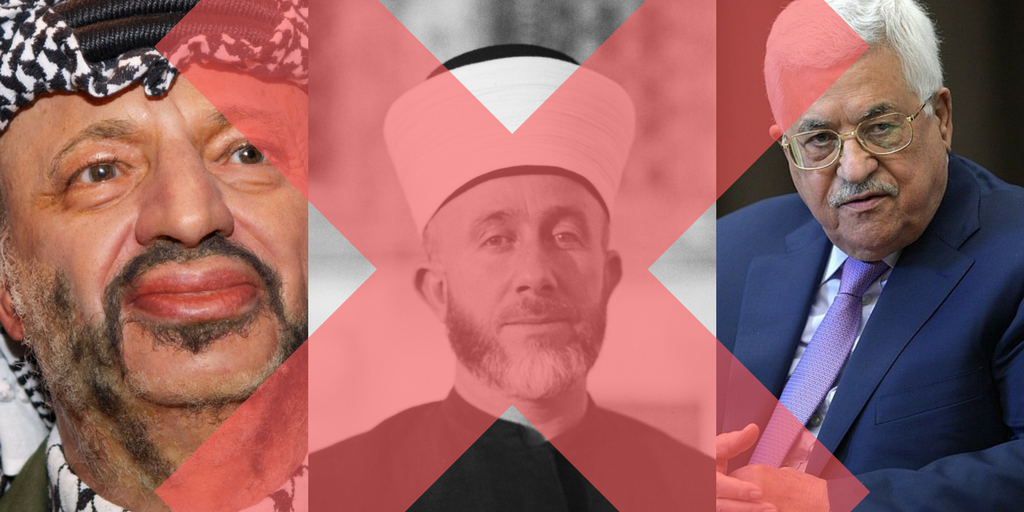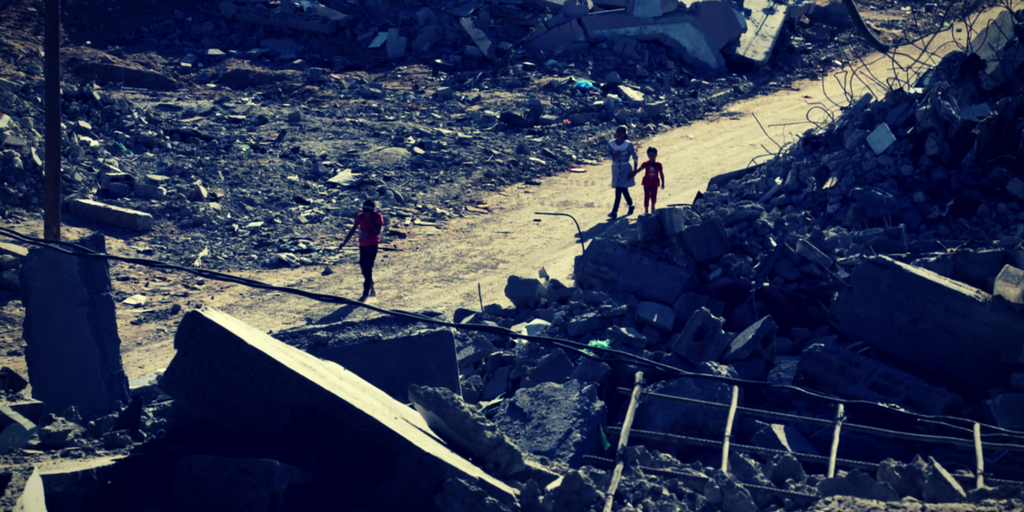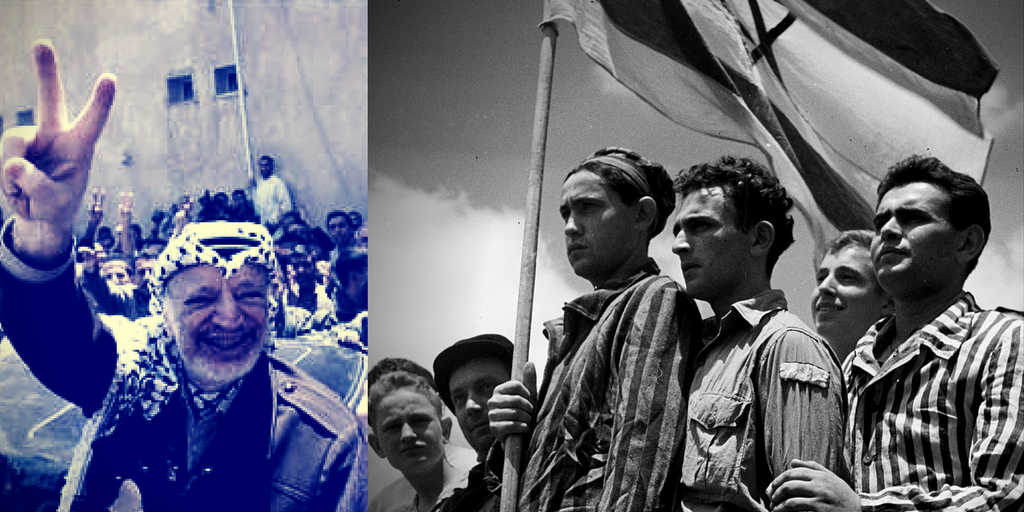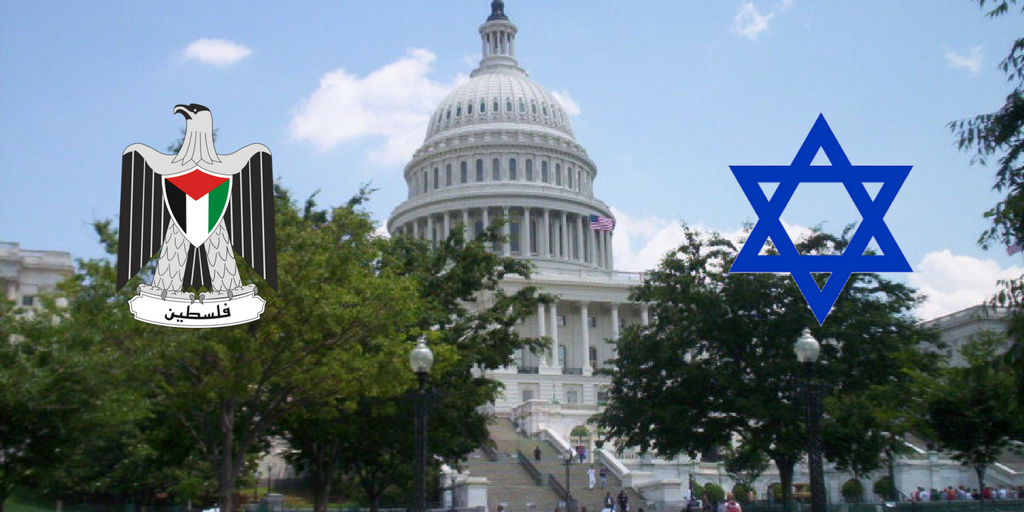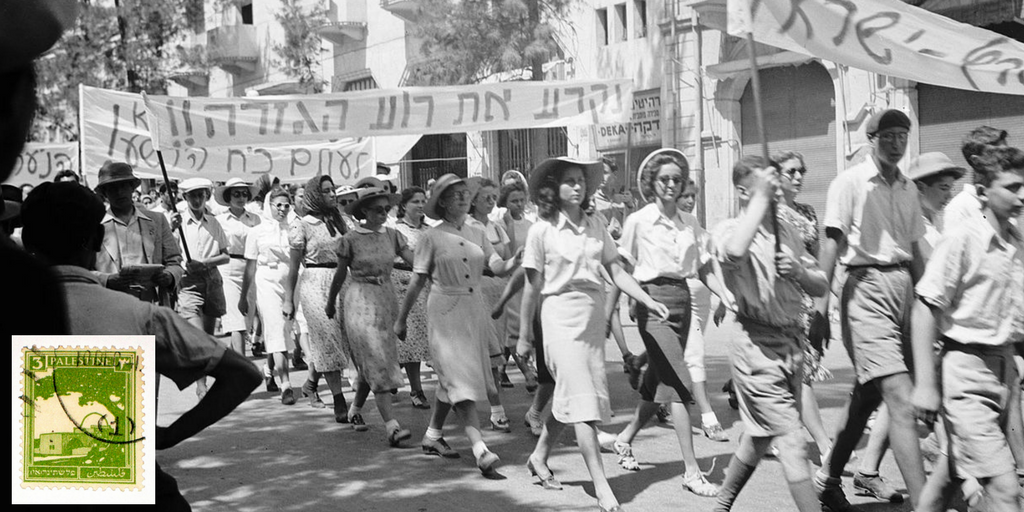The Palestinians the international media don’t talk about — and the reason why.
How can we explain the international community’s indifference to Palestinian suffering? Every day, angry bands of protesters burn the flag of Israel, call for the destruction of the Jewish state and insist that Israel and its Jewish citizens be shunned from polite society and thrown out of the global economy all in the name of opposing “the Occupation.”
Although the breathless protesters insist that all their efforts are directed toward the Palestinians, as it works out, none of their assaults on Israel have improved the Palestinians’ lot. To the contrary, their protests have given a free pass to those that do the most to harm Palestinians.
The angry, hateful protests against Israel tell us nothing about either the history of the Palestinians’ relations with the Jewish state or their present circumstances.
And what are those circumstances? Consider the stories of two different groups of Palestinian prisoners.
The first story relates to the Palestinian terrorists imprisoned in Israeli jails after being tried and convicted of engaging in terrorist attacks against Israel.
Led by terrorist mastermind Marwan Barghouti, who is serving multiple life sentences for killing multiple Israelis, in April more than a thousand jailed terrorists opened a hunger strike demanding an improvement in their prison conditions.
The New York Times published an op-ed by Barghouti and massively covered the strike. Numerous other marquee media organizations similarly provided sympathetic coverage of the event.
Hidden beneath mountains of column inches was the basic fact that the terrorists’ demands made clear that their strike was ridiculous.
They weren’t demanding food. They weren’t demanding fair trials or the right to speak to their attorneys.
They were demanding that Israel add 20 new channels to their standard, free cable television access.
They demanded that Israel let them have telephones in their rooms.
They demanded that Israel buy them air conditioning units.
In other words, they were demanding that Israel treat them better than it treats its own soldiers.
The second prisoner story is the story of the 12,000 Palestinians that have been jailed in Syrian regime prisons since the start of the Syrian civil war. These men, women and children are denied sufficient food and water. They are subjected to torture. Several cases have been reported of Palestinian female prisoners being subjected to gang rapes. More than 500 Palestinians have died in jail. More than 500 Palestinian children are behind bars.
And the plight of the Palestinians on the outside is no better.
Nearly 4,000 Palestinians have been killed by regime forces since the start of the war. Yarmouk refugee camp has been all but depopulated. Whereas before the war began in 2011, more than 120,000 Palestinians resided in the camp just 8 km. from central Damascus, today a mere 20,000 remain. Those who remain have been besieged by regime forces for nearly three years. They have been starved and parched. Running water was cut off years ago.
And yet, the only journalist who has consistently covered the story is Palestinian affairs correspondent Khaled Abu Toameh, writing for the niche website of the Gatestone Institute.
As Abu Toameh noted in a report on the Palestinians in Syria last August, the leaders of the PLO and the Palestinian Authority like their sometimes-rivals- sometimes-partners in Hamas have refused to intervene on their behalf.
To the contrary, the PLO happily reopened its embassy in Damascus last year, despite the fact that it is accredited to a regime that is slaughtering the people that the PLO claims to represent.
Abu Toameh wrote bitterly, “The Palestinians of Syria would have been more fortunate had they been living in the West Bank or Gaza Strip. Then the international community and media would certainly have noticed them. Yet when Western journalists lavish time on Palestinians delayed at Israeli checkpoints in the West Bank, and ignore barrels of explosives dropped by the Syrian military on residential areas in refugee camps in Syria, one might start to wonder what they are really about.”
This week we got reminder of what this is really about from an odd source.
During his interview with NBC’s Megyn Kelly, Russian President Vladimir Putin grew exasperated with Kelly’s repetitious line of questioning about whether or not Russia colluded to get President Donald Trump elected last November.
After repeatedly denying Kelly’s allegations, Putin insisted that the Russian-US elections narrative is simply a conspiracy theory invented by Democrats and their allies to avoid the blame for Hillary Clinton’s defeat.
In Putin’s words, “It’s easy to say, ‘It’s not our fault. It’s the Russians. They intervened. They interfered.’” Putin then compared the anti-Russian conspiracy theory to antisemitism.
“It’s like antisemitism,” Putin explained. Anti-Jewish conspiracy spinners use the Jews as a means to deflect blame for their failures. In his words, “‘The Jews are to blame.’ You’re [not] an idiot. Because ‘the Jews are to blame.’” Putin’s statement is important for two reasons.
First, the former KGB chief knows a thing or two about antisemitic conspiracy theories. Russia has played an outsized role in inventing them for precisely the reason that Putin gave – blame deflection.
It was a precursor of the KGB, the czar’s secret police, that wrote the infamous Protocols of the Elders of Zion which purported to expose a Jewish world conspiracy to control humanity for nefarious ends.
And in 1949, it was the KGB that created the antisemitic conspiracy that has animated and controlled Western discourse on Israel ever since. It was then that the Soviets invented the term “anti-Zionism,” and began referring to Jews as Zionists.
And this brings us to the second noteworthy aspect of Putin’s discussion of antisemitism. The KGB rebranded Jews as “Zionists” and antisemites as “anti-Zionists” to rescue antisemitism as a tool of political warfare from the ruins of Auschwitz.
Until then, it was socially unacceptable to hate Jews.
After the KGB moved to pan Zionism as a form of colonialism and imperialism, it became fashionable again.
What Putin explained in his remarks is that conspiracy theories are not accidental occurrences.
They are deliberate, premeditated acts of political warfare that serve specific political purposes for their creators.
Anti-Zionist conspiracies, like their traditional anti-Jewish antecedents are particularly attractive because Jews are such an easy target.
Their small numbers and the ease with which they can be singled out makes them natural targets of conspiracy mongers.
After all, who will stand up for Israel and the Jews? Jews, of course, have no credibility as defenders of the Jewish state, because, well, they’re Jews.
As for non-Jewish defenders of Israel – they can dismissed as hired guns or religious fanatics or discredited in any number of other ways.
Sadly, while Putin has no compunction about standing up to the anti-Russia conspiracy spinners, with each passing year, the American Jewish community has had more and more difficulty recognizing that they are the target of a conspiracy theory and acting appropriately. Rather than stand up for Israel and against its detractors, more and more American Jews have joined them.
And those who do not join them try to get out from under the conspiracy web by pretending that it is a rational argument, rather than a conspiracy.
Indeed, increasingly, American Jewish organizations make distinctions between Israel and Judea and Samaria. They don’t take their tours beyond the 1949 armistice lines. They say that boycotts of Jewish products made beyond the lines are legitimate.
They try to “dialogue” with anti-Israel activists and blackball Israeli conservatives.
And lo and behold, it doesn’t work.
It doesn’t work because it cannot work. Because the conspiracy mongers are not interested in compromising, they are interested in delegitimizing the very notion that Jews can argue with them.
The toll this has taken on the American Jewish community was clearly in evidence this week at the Israel Day Parade in New York.
15 years ago, some 100,000 area Jews marched in the parade. This year, official counts put the number of marchers at 40,000. A disproportionate number of them were Orthodox.
Fifty years after the Six Day War, Israel has become a hard subject for American Jews to discuss not because it is hard on the merits to defend, but because the conspiracy theories which have taken control of the non-Jewish discourse on Israel have captured the American Jewish discourse as well.
The most pressing duty of the American Jewish community then is to finally recognize the nature of the battle they are beset by and fight it as hard as they can.
The long-suffering Palestinians will no doubt thank them for doing so.
Originally published by the Jerusalem Post.


